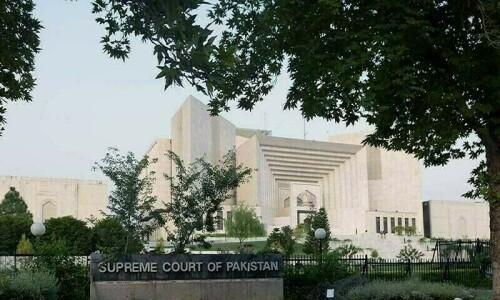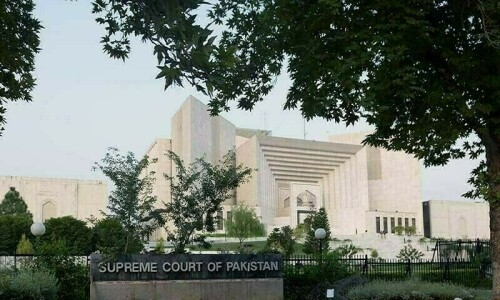WHEN all one has is a hammer, every problem looks like a nail. Not content with controlling mainstream media, the Pakistani authorities have lately begun experimenting with various means to gate-keep the internet.
The ones already reported on include the implementation of a national firewall, invasive technologies to snoop on citizens’ digital communications, restrictions on VPN services, and coercive policies designed to enforce compliance with state demands on global internet companies.
Perhaps enamoured of China’s success in keeping internal disturbances in check through the constant policing of its citizens’ activities online, decision-makers in Pakistan are seeking to replicate the model on their own citizens. However, as with most ‘imported’ solutions, this project is unlikely to work as intended.
China’s success in maintaining an insulated digital presence has much to do with its history as a closed society, its largely homogenous culture, and far better socioeconomic conditions. None of these conditions exist in Pakistan.
Traditionally open and tightly connected with multiple foreign economies, Pakistan is also a very heterogeneous society with many internal fault lines. On top of that, due to repeated interference in its politics, it is sorely lacking in the department of competent, far-sighted leadership, as amply demonstrated by the tunnel-visioned policies adopted by its administrators in recent years amidst its biggest socioeconomic crisis.
All of this would suggest that the effort to wall in its people and control their lives virtually may only end up pushing the country even further behind in the global race for digital supremacy. For a nation largely comprising very young people, this would be an unmitigated disaster as it could have repercussions that may spill over generations. Already struggling to compete, the Pakistani people will end up being deprived of even more chances to realise their potential and contribute positively on a global scale.
There is a tendency in the Pakistani elite to fixate on symptoms rather than the cause, which has brought the country to its present state. This tendency is evident in everything from budget strategies to security policies, all of which regularly miss the forest for the trees. For this reason, it may be worth revisiting why so many citizens are unhappy with the state and what policies have contributed to their feelings of discontent. Is it not better to review these policies than double down on them?
It must be understood that Pakistan has changed fundamentally over the past decade. Its youth are clamouring for positive change and, instead of trying to control them, it would be much better if the state simply got out of their way. The decision-making authorities must stop adding to the volatility of the social transformation currently in progress. There is an urgent need for them to rethink their approach.
Published in Dawn, August 3rd, 2024

















































Dear visitor, the comments section is undergoing an overhaul and will return soon.